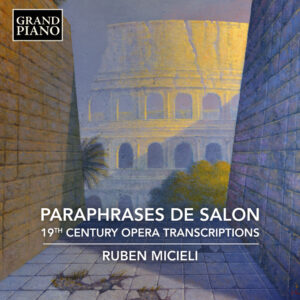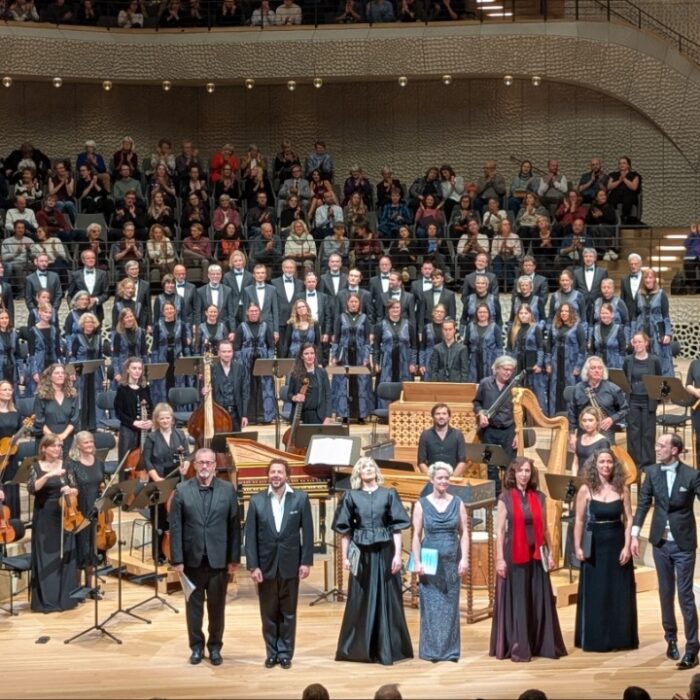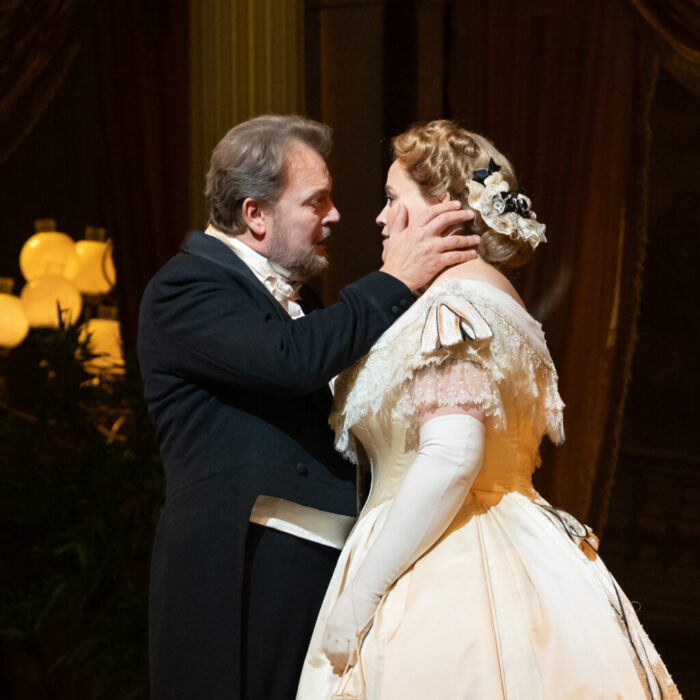
CD Review: Ruben Micieli’s ‘Paraphrases de Salon’
By Bob DieschburgOpera transcriptions for piano are legion. Some can claim no less originality than the compositions they derive from; others are divertimenti—products of 19th-century salon culture meant to delight. But few—if any—are entirely free of prejudice.
Wagner fares best, with transcriptions available not only by Liszt, but also Stradal, Kocsis, and even Lugansky. For the Italians, there’s Liszt again; yet pianistic reinterpretations that have made it onto playbills are few and far between. This may be a temporary negligence, for which the new release of “Paraphrases de Salon,” by Ruben Micieli, proposes an ever so powerful antidote.
Bel Canto Domesticated
Verdi and Bellini are—of course—household names. The arrangers, by contrast, are virtually unknown. Never had I heard of Edward Biehl before, nor did I know Ferdinand Beyer and Adolfo Fumagalli existed—not to mention Eugenia Appiani, who verges on the apocryphal. Only Joachim Raff enjoys some name recognition, though mostly in the symphonic genre.
That is not to say “Paraphrases de Salon” is an anthology. It does not aspire to completeness, but proffers snapshots instead. The track selection, for instance, is limited to transcriptions of Verdi’s trilogy—“Rigoletto,” “Il Trovatore,” and “La Traviata”—with excursions into the high points of the Bel canto era: “Norma,” “I Capuleti e i Montecchi,” and “I Puritani.” It casts grand opera, or its Italian equivalent, into the domestic framework of elegant, if not always virtuosic, piano music.
Mini-Epics and Divertimenti
Unsurprisingly, the paraphrases culminate in melodic highlights which, collectively, may feel like a pianistic potpourri. In Biehl’s fantasia, for example, the Anvil Chorus and “Miserere” cadence the narrative arc.
The idea—here as elsewhere—is not to produce a Stimmungsbild (as is arguably the case for some Wagnerian transcriptions). Rather, Biehl and his contemporaries propose a definition of the compilatory form, which the interpreter—Ruben Micieli—transforms into a cohesive whole.
In Raff’s Op. 70, for example, the interjection of Father Germont provides the starting point for a polyvocal recreation of Act two. Every voice—Germont, Alfredo, Violetta, and the choir—has a distinctive tone which Micieli weaves into his interpretation. Violetta in particular stands out for the rubato imparted by the Sicilian pianist, whose expression, while tender, avoids the histrionics of sentimentality.
By contrast, Fumagalli’s “melodia variata” expands not on a scene but on the melody of “Di Provenza il mar, il suol.” Appiani’s “ballata” is equally limited in scope, a playful bit halfway between a salon frivolity with only moderate technical demands, and a character study of the Mantuan Duke.
The fantasias, however, are mini-epics distilled from multiple acts. For better or worse, they draw on the broadest palette of both stylistic and technical means. Here, Micieli shines—and without quirkiness of, say Ervin Nyiregyházi—places himself on par with any of his competitors.
“Paraphrases de Salon,” on the Grand Piano label, provides one of the best, if not the best, picture of Italian opera’s migration into the domestic sphere of the bourgeoisie. As such, it is an unmissable complement to the transcriptions of Liszt and his peers.


